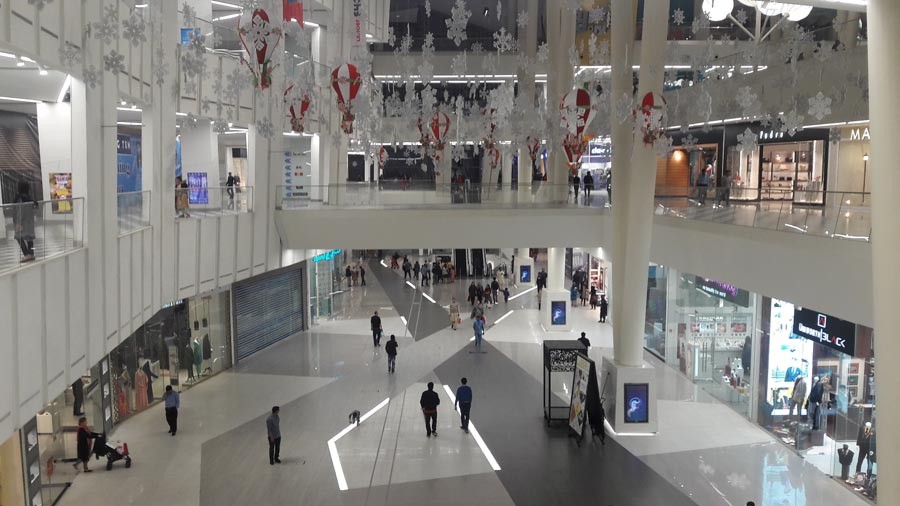
Do we even stop and think what all this consumerism and excessive buying is doing to the planet?

It was during the last summer break that my 14 year old son expressed this desire to meet up with his classmates because they were all "too bored". He was communicating with his friends on Facebook messenger and soon there was a plan. They were all going to meet in the newly opened mega shopping mall in the suburban part of the city where most of his friends live.
It took me some time to get comfortable with the idea. The mousetrap does work even for those in their early teens; the food and cinema under one roof being the biggest attraction. Not a cricket or football ground nor even a coffee shop but a shopping mall. These kids have discovered the place where they think happiness resides. I shuddered.
I was reminded of some other teens in another city who were stopped from entering another new mall because they came from a different class, with no potential to add to the mall’s revenue. They, the Pindi boys, just came to see, to just be in that mall. And that became a cause for concern.
As most of us are enamoured by the lure of the mall, a phenomenon dying a natural death in its place of birth, do we ever stop and think if this enclosed space is indeed the realisation of all our aspirations. Is this a place to buy stuff or is there a social experience as well. Is some form of socialising happening in a shopping mall or is it designed to serve a particular purpose -- as the pinnacle of entertainment.
I personally find the malls rather tiring. The bigger they are, the more stressful they seem to me. The coffee shops and the food courts do not provide the relief they are supposed to. If you live in the city centre, you have to make an extra effort to reach the sprawling malls, braving the relentless traffic. The parkings are better than the earlier claustrophobic ones and yet the entire experience leaves you feeling dizzy.
The malls certainly have evolved over decades and have become the multi-purpose places that don’t leave anything to chance. There are brands to choose from, benches to sit on, coffee shops, places to charge your phone, gyms, cinema, you name it. Most malls have offices, residential flats and boutique hotels. And book shops too, because people with money have gotten into the habit of buying books.
Read also: Editorial
But the central purpose remains to create a hub of commerce under one roof instead of scattered streets. You must carry a fat purse before entering them because that’s why you are there.
Those who hold the illusion that shopping malls allow for a mixing of classes must realise it’s nothing but an illusion. In fact, in their evolutionary journey, each new mall starts off by selling its high-end products and services. As soon as commoners enter the game, it’s time for the capitalist to move on.
And yet going to a shopping mall for excursion and compulsive buying is its own reward. We do it all the time without for a moment stopping to think if we need all the things that we are accumulating, or considering what all this consumerism and excessive buying is doing to the planet. One recognises the human need to be surrounded by stuff not just for utilitarian but also for aesthetic reasons. But do we know where to draw the line? With its vulgar abundance, does a shopping mall help us draw that line?
Meant initially for the suburbs in cities, it is ironic and sad how the city centres are demolishing old buildings of historical value to build malls of their own. It is time to rethink the uses of shopping malls because if true happiness does not lie here, we must figure out where it does.